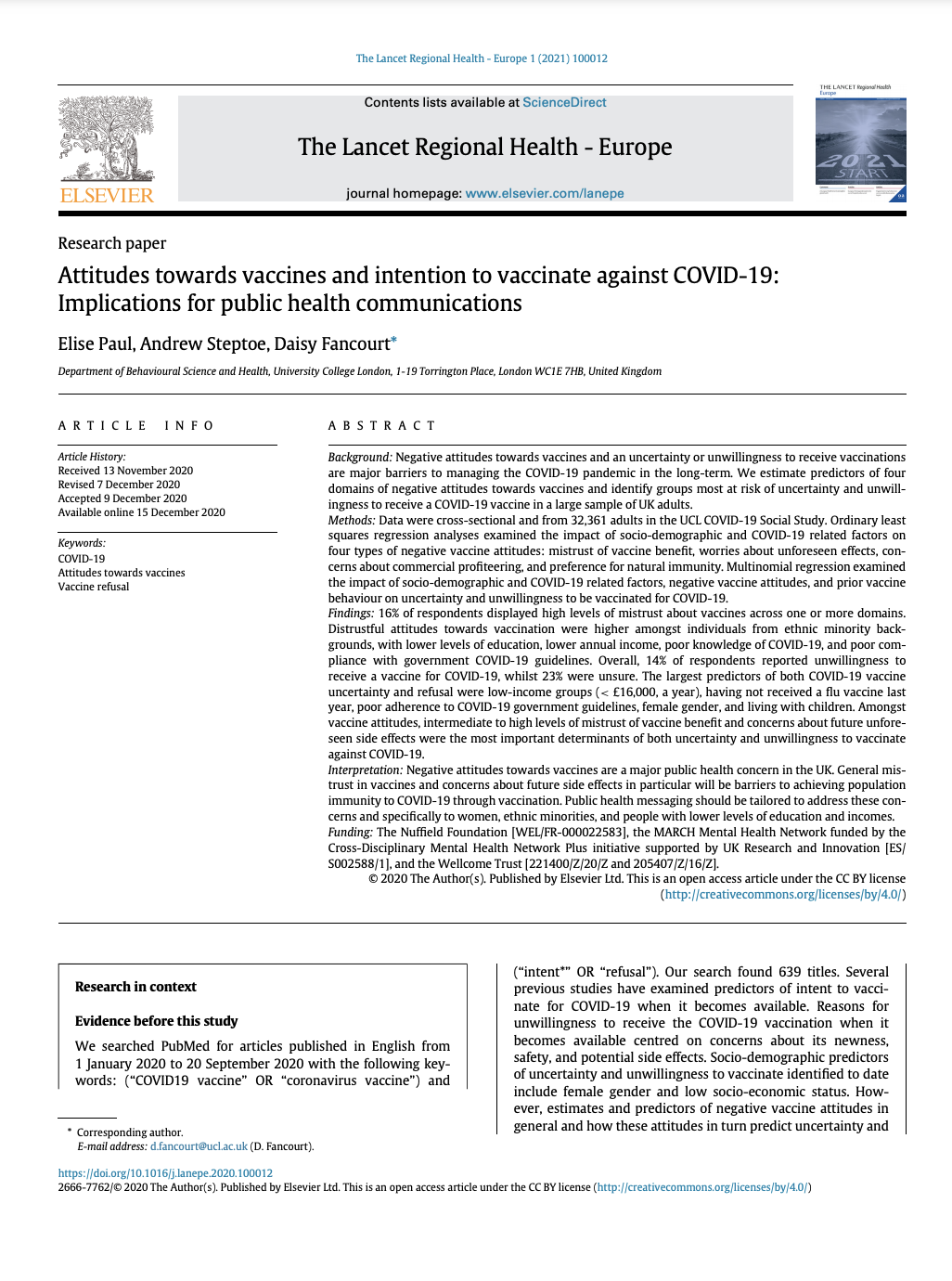Attitudes towards vaccines and intention to vaccinate against COVID-19: Implications for public health communications
Description
Negative attitudes towards vaccines and uncertainty or unwillingness to receive vaccinations are major barriers to managing the COVID-19 pandemic in the long-term. We estimate predictors of four domains of negative attitudes towards vaccines and identify groups most at risk of uncertainty and unwillingness to receive a COVID-19 vaccine in a large sample of UK adults.
Data were cross-sectional and from 32,361 adults in the UCL COVID-19 Social Study. Ordinary least squares regression analyses examined the impact of socio-demographic and COVID-19 related factors on four types of negative vaccine attitudes: mistrust of vaccine benefit, worries about unforeseen effects, concerns about commercial profiteering, and preference for natural immunity. Multinomial regression examined the impact of socio-demographic and COVID-19 related factors, negative vaccine attitudes, and prior vaccine behaviour on uncertainty and unwillingness to be vaccinated for COVID-19.
16% of respondents displayed high levels of mistrust about vaccines across one or more domains. Distrustful attitudes towards vaccination were higher amongst individuals from ethnic minority backgrounds, with lower levels of education, lower annual income, poor knowledge of COVID-19, and poor compliance with government COVID-19 guidelines. Overall, 14% of respondents reported unwillingness to receive a vaccine for COVID-19, whilst 23% were unsure. The largest predictors of both COVID-19 vaccine uncertainty and refusal were low-income groups (< £16,000, a year), having not received a flu vaccine last year, poor adherence to COVID-19 government guidelines, female gender, and living with children. Amongst vaccine attitudes, intermediate to high levels of mistrust of vaccine benefit and concerns about future unforeseen side effects were the most important determinants of both uncertainty and unwillingness to vaccinate against COVID-19.
Negative attitudes towards vaccines are a major public health concern in the UK. General mistrust in vaccines and concerns about future side effects in particular will be barriers to achieving population immunity to COVID-19 through vaccination. Public health messaging should be tailored to address these concerns and specifically to women, ethnic minorities, and people with lower levels of education and incomes.
Additional languages

DETAILS
Publication
Authors
Emergency
Scope
Language
Region
Keywords

